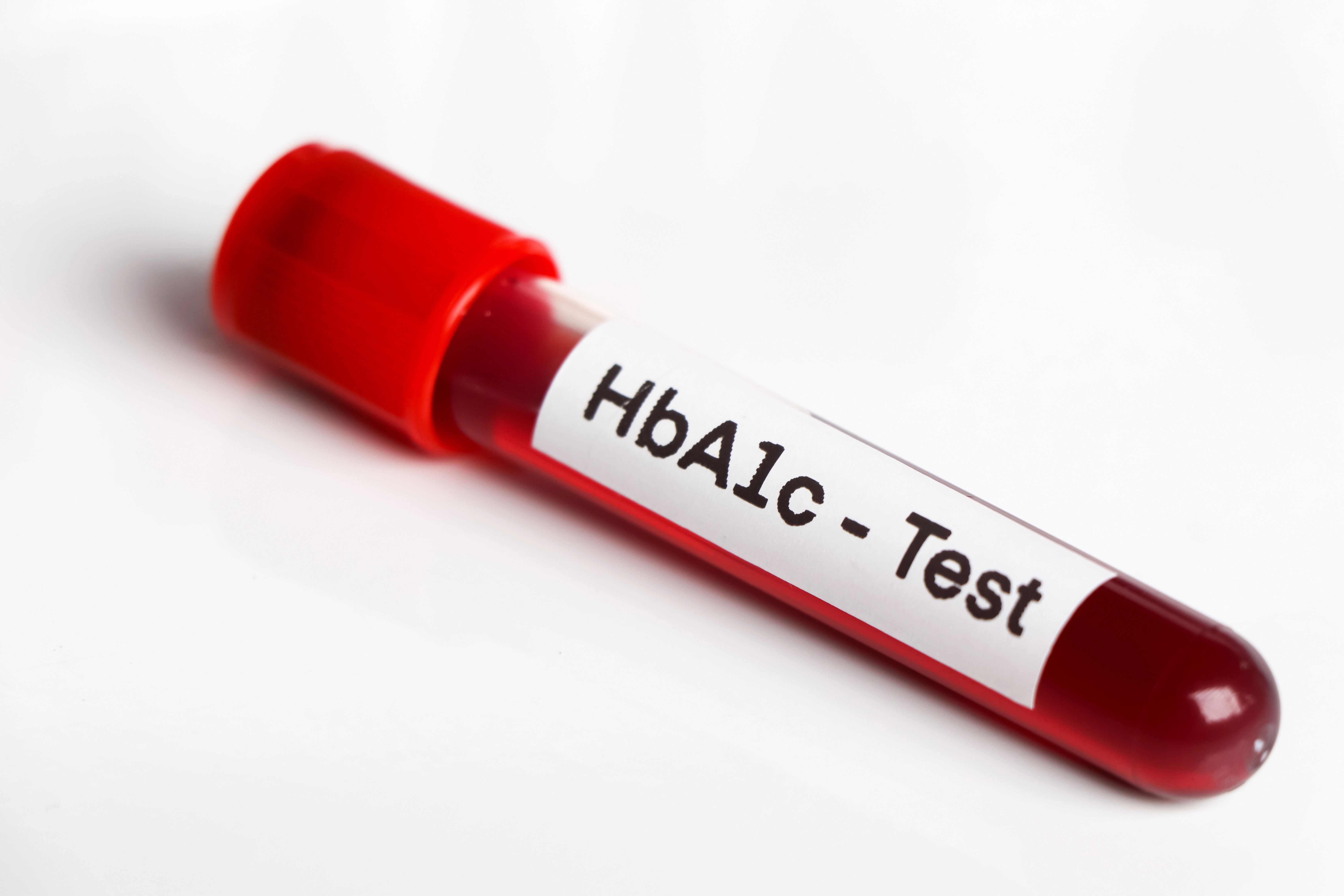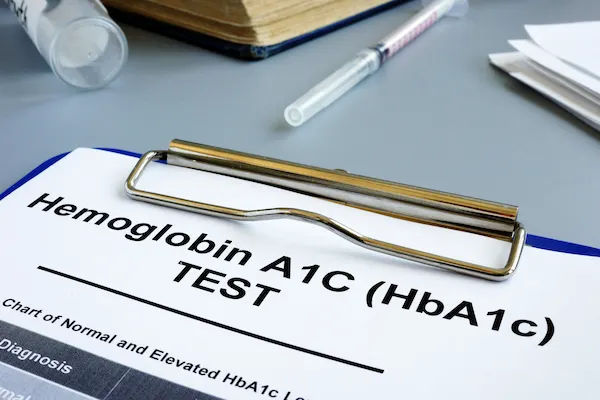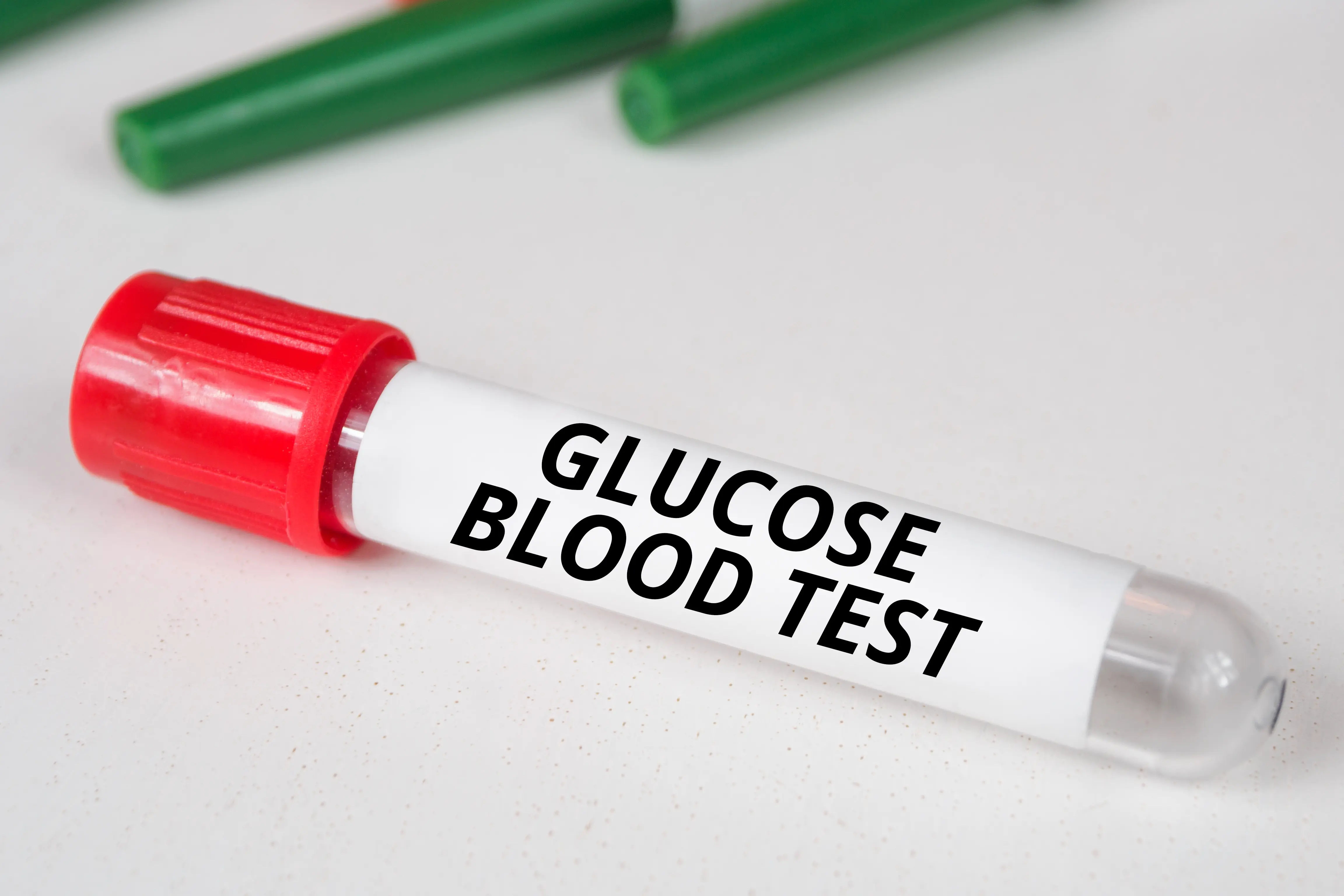PCOD vs Thyroid: What’s Messing Up Your Hormones? Check With These Tests
PCOD and thyroid issues often share similar symptoms. Discover the key tests that can differentiate between these hormonal imbalances and help you get an accurate diagnosis.

Written by
Last updated on 17th Jul, 2025

If you're a woman experiencing a confusing mix of symptoms like irregular periods, weight changes, fatigue, hair issues, or mood swings, you might be wondering if it's Polycystic Ovary Syndrome (PCOD) or a thyroid problem. These two common hormonal conditions often present with remarkably similar symptoms, making it difficult to pinpoint the exact cause without professional help. For many women aged 18 to 35, who are often in their reproductive prime, understanding these distinctions is crucial for managing their health and fertility.
While both PCOD and thyroid imbalances can disrupt your body's natural rhythm and well-being, getting an accurate diagnosis is the first and most important step towards effective management. Simply addressing symptoms without knowing the root cause might lead to frustration and delay proper treatment. Fortunately, specific blood tests can offer crucial insights, helping your doctor clearly differentiate between PCOD and thyroid issues, and guiding you toward a personalised solution for hormonal balance and improved health. This guide will explore the key tests that can help clarify what's truly messing up your hormones.
Understanding PCOD vs. Thyroid: Two Hormonal Conditions
Both Polycystic Ovary Syndrome (PCOD) and thyroid disorders involve your body's endocrine (hormone) system, and they can both cause a range of overlapping symptoms, leading to confusion.
What is PCOD? PCOD is a common hormonal disorder affecting women of reproductive age. It's characterised by:
- Hormonal Imbalance: Often involving higher levels of male hormones (androgens).
- Irregular Periods: Due to irregular or absent ovulation.
- Polycystic Ovaries: Ovaries may develop numerous small follicles (cysts) and fail to regularly release eggs.
Common PCOD Symptoms that Overlap with Thyroid Issues:
- Irregular periods (infrequent, prolonged, or absent)
- Weight gain or difficulty losing weight
- Fatigue
- Hair thinning or loss
- Acne
- Mood swings
- Difficulty conceiving
What is Thyroid Imbalance? The thyroid is a butterfly-shaped gland in your neck that produces hormones (T3 and T4) that control your body's metabolism.
- Hypothyroidism (Underactive Thyroid): Not enough thyroid hormone.
- Hyperthyroidism (Overactive Thyroid): Too much thyroid hormone.
Common Thyroid Symptoms that Overlap with PCOD:
- Hypothyroidism: Fatigue, weight gain, irregular periods, dry skin, hair loss, cold sensitivity, depression.
- Hyperthyroidism: Weight loss (sometimes gain), anxiety, restlessness, rapid heart rate, irregular periods, hair thinning.
As you can see, the shared symptoms like menstrual irregularities, weight changes, fatigue, and hair problems make it essential to get proper testing to tell these conditions apart.
When to Consider Tests for Hormonal Imbalances (PCOD or Thyroid)?
If you're experiencing persistent or concerning symptoms that suggest a hormonal imbalance, especially if you fall into the 18-35 age group, it's vital to talk to your doctor about getting tested. Early and accurate diagnosis is key for effective management. Consider these tests if you experience:
- Persistent Period Irregularities: Cycles that are consistently too long (e.g., more than 35 days apart), too short, very heavy, or completely absent.
- Unexplained Weight Changes: Significant weight gain or difficulty losing weight, or, less commonly, unexplained weight loss.
- Chronic Fatigue: Feeling tired all the time, even with adequate rest.
- Hair and Skin Issues: Excessive hair growth (hirsutism), hair thinning/loss on your scalp, or persistent acne.
- Mood Fluctuations: Frequent mood swings, anxiety, or feelings of depression.
- Difficulty Getting Pregnant: If you are trying to conceive and facing challenges.
- Family History: If there's a family history of PCOD or thyroid disorders.
If any of these sound familiar, discussing specific blood tests with your doctor can help clarify whether PCOD, a thyroid issue, or another hormonal imbalance is at play, leading to a more effective, personalised treatment plan.
Get These Tests If You're Hormones Are Messed Up
Key Tests to Differentiate PCOD from Thyroid Issues
When symptoms point to a hormonal imbalance, specific blood tests are crucial to distinguish between PCOD and a thyroid disorder. These tests provide vital information about the function of your ovaries, pituitary gland, and thyroid gland.
LH (Luteinizing Hormone) and FSH (Follicle-Stimulating Hormone)
- What they measure: These are hormones produced by your pituitary gland that regulate ovarian function, including ovulation.
- Why they’re important: In PCOD, the ratio of LH to FSH is often higher than normal (typically LH: FSH > 2:1 or 3:1). This imbalance indicates a disruption in the signalling that leads to regular ovulation. In contrast, these levels are typically normal in primary thyroid disorders.
TSH (Thyroid-Stimulating Hormone)
- What it measures: TSH is a hormone produced by the pituitary gland that tells your thyroid gland how much thyroid hormone (T3 and T4) to produce.
- Why it’s important: This is the primary screening test for thyroid function.
High TSH usually indicates an underactive thyroid (hypothyroidism).
Low TSH usually indicates an overactive thyroid (hyperthyroidism).
Abnormal TSH levels point to a thyroid disorder, which can explain many symptoms that mimic PCOD. Normal TSH levels help rule out a primary thyroid problem as the cause of symptoms. Your doctor may also check Free T3 and Free T4 for a complete picture.
AMH (Anti-Müllerian Hormone)
- What it measures: AMH is a hormone produced by small follicles (sacs containing eggs) in the ovaries.
- Why it’s important: Women with PCOD often have higher than normal AMH levels, reflecting the increased number of small, undeveloped follicles in their ovaries. Elevated AMH can be a strong indicator of PCOD, especially when combined with other symptoms, and is generally not affected by thyroid disorders.
Androgen Levels (Total Testosterone, Free Testosterone, DHEA-S, Androstenedione)
- What they measure: These tests measure various "male hormones" (androgens) present in both men and women.
- Why they’re important: Elevated levels of androgens are a key feature of PCOD and are responsible for symptoms like excess body hair (hirsutism) and acne. These levels are typically normal in uncomplicated thyroid disorders.
Fasting Insulin and Glucose, HbA1c
- What they measure: These tests assess how your body is handling blood sugar. Fasting insulin measures insulin levels after an overnight fast, glucose measures current blood sugar, and HbA1c gives an average over 2-3 months.
- Why they’re important: Insulin resistance is common in PCOD. High insulin levels can stimulate the ovaries to produce more androgens, worsening PCOD symptoms. These tests help identify insulin resistance, which is a common metabolic feature of PCOD but not directly caused by thyroid issues.
The results from these specific blood tests, combined with your symptoms, medical history, and a thorough physical examination, will help your doctor accurately diagnose whether your symptoms are due to PCOD, a thyroid condition, or another underlying issue. This clear diagnosis allows for a targeted treatment plan designed to bring you lasting hormonal balance and improved well-being.
Get Tested Easily with Apollo 24|7
When your doctor recommends diagnostic tests to clarify whether PCOD or a thyroid issue is affecting your hormones, choosing a trusted and convenient testing provider is paramount. Apollo 24|7 simplifies this process by offering a wide range of reliable lab tests. With accurate results delivered quickly, you and your doctor can work together to identify the exact cause of your symptoms and plan the right path to hormonal balance.
Here’s why choosing Apollo 24|7 for your hormonal imbalance investigations is a smart step:
- Comprehensive Test Panels: Apollo 24|7 offers the PCOD Profile Advanced, a diagnostic package designed to assess hormonal and metabolic imbalances linked to both PCOD and thyroid conditions. This panel includes key tests such as LH, FSH, TSH, AMH, and evaluations of androgens and blood sugar levels, helping identify disruptions that may be affecting menstrual health, weight, mood, and fertility.
- NABL-Accredited Labs: Tests are conducted in high-quality labs certified by the National Accreditation Board for Testing and Calibration Laboratories (NABL), ensuring trusted accuracy and reliability for your results.
- Home Sample Collection: Get blood samples collected conveniently from your home at a time that suits you, offering privacy and comfort.
- Easy Online Booking: Book your tests effortlessly through the user-friendly Apollo 24|7 app or website with just a few clicks.
- Fast Digital Reports: Receive secure, detailed reports swiftly online, delivered directly to your device, ready for your doctor to review.
- Trusted Brand: Benefit from the trusted expertise and healthcare legacy of Apollo Hospitals Group, one of India’s most respected medical networks.
By choosing Apollo 24|7, you gain access to high-quality, reliable, and convenient diagnostic services that can significantly streamline your journey towards understanding and effectively managing your hormonal health.
Conclusion
Experiencing confusing symptoms like irregular periods, weight changes, or fatigue can be frustrating, especially when PCOD and thyroid issues present so similarly. However, knowing the exact cause of your hormonal imbalance is the critical first step towards effective treatment and lasting relief.
Specific tests, including those for LH, FSH, TSH, AMH, and androgen levels, are invaluable tools. These tests help your doctor accurately differentiate between PCOD and thyroid disorders, guiding a tailored plan that addresses the root cause of your symptoms. Obtaining an accurate diagnosis is key to restoring hormonal balance, improving fertility (if applicable), and enhancing your overall well-being. If you're struggling with persistent symptoms and suspect a hormonal issue, consult your doctor to explore if these tests can provide the clarity and answers you need.





